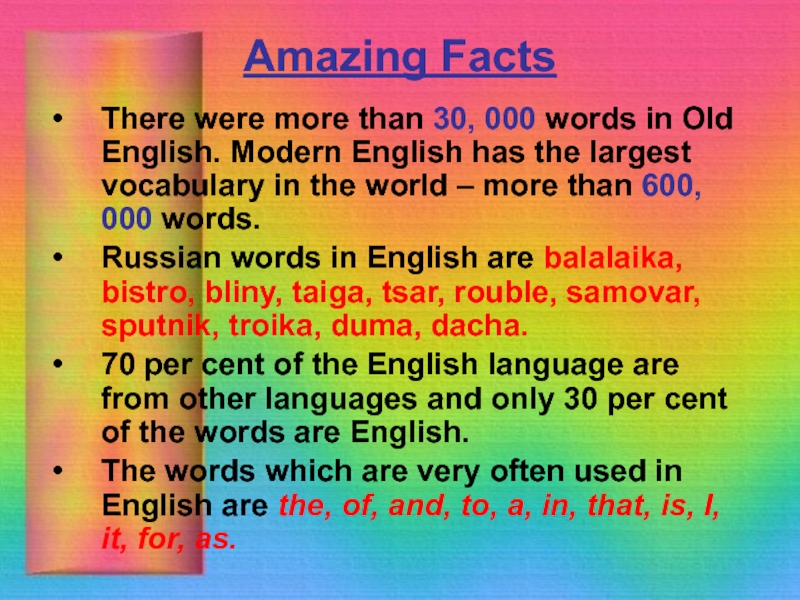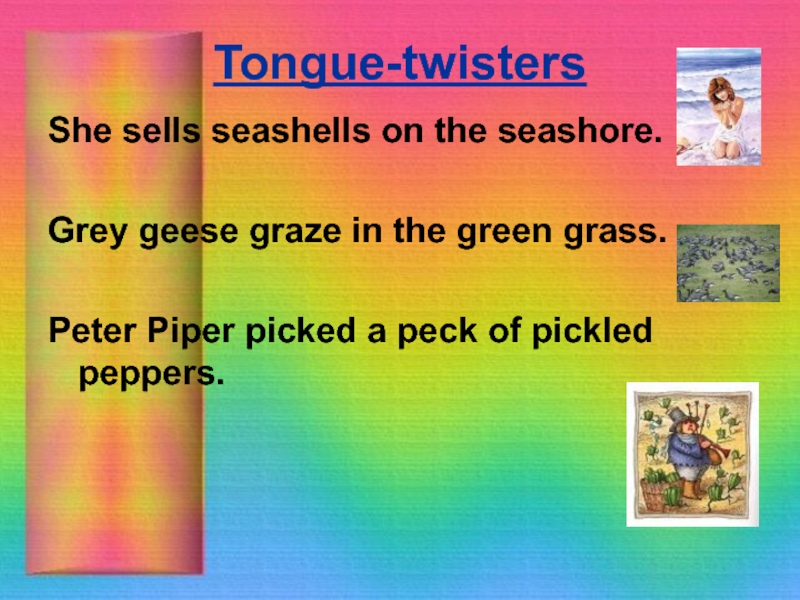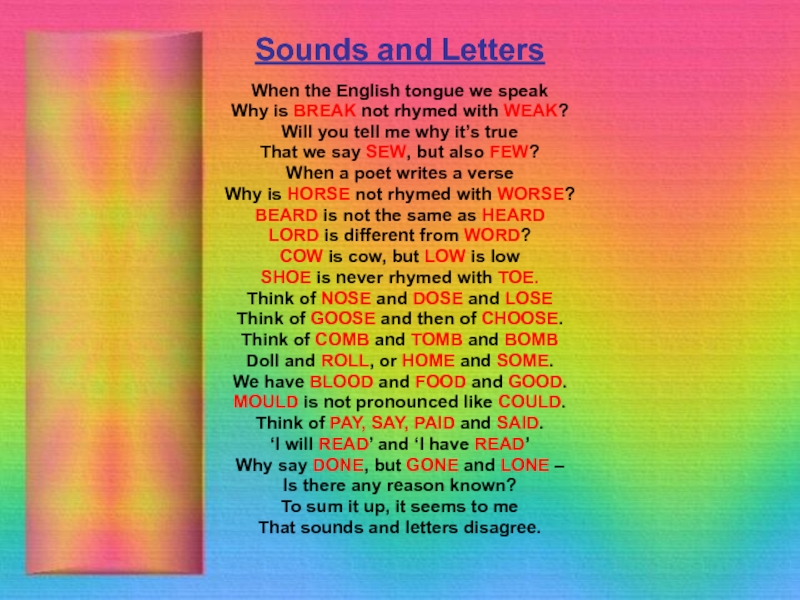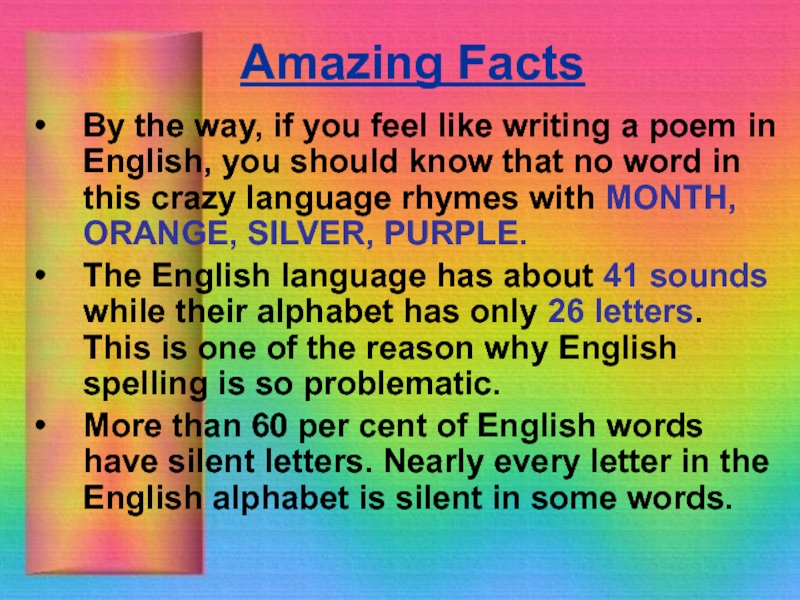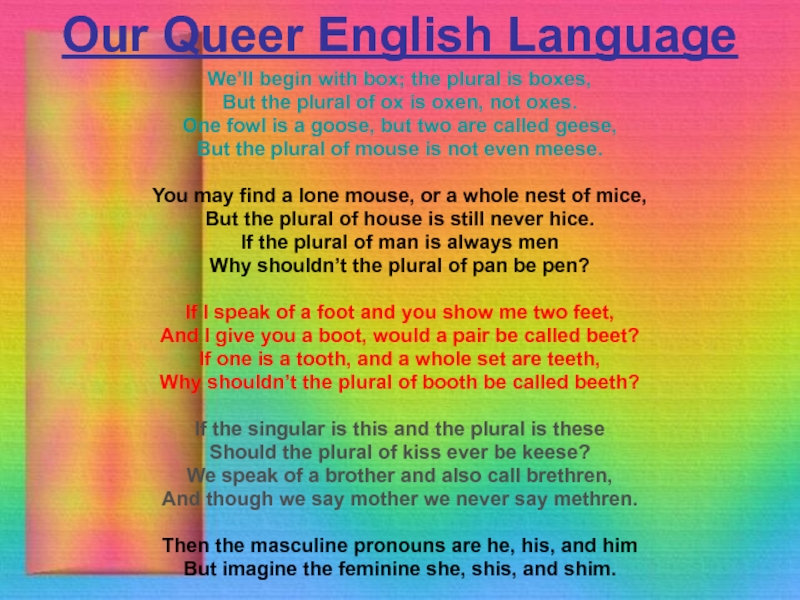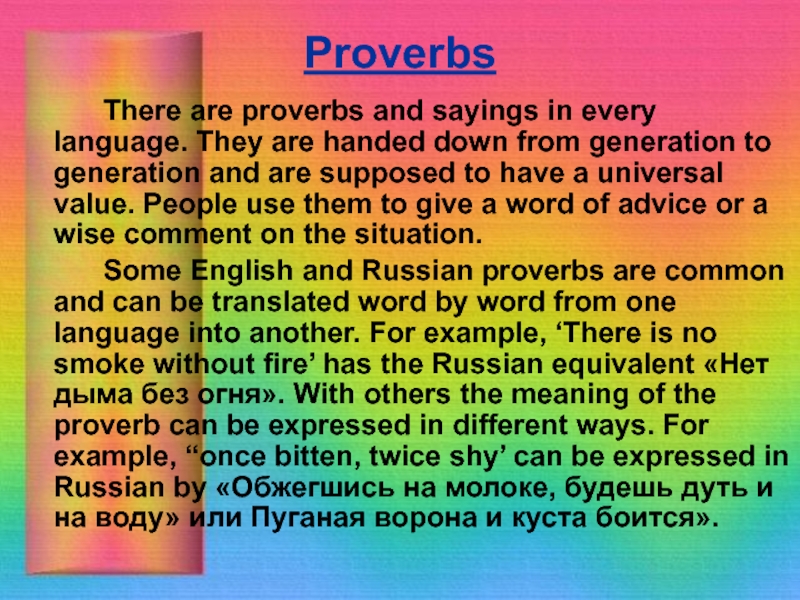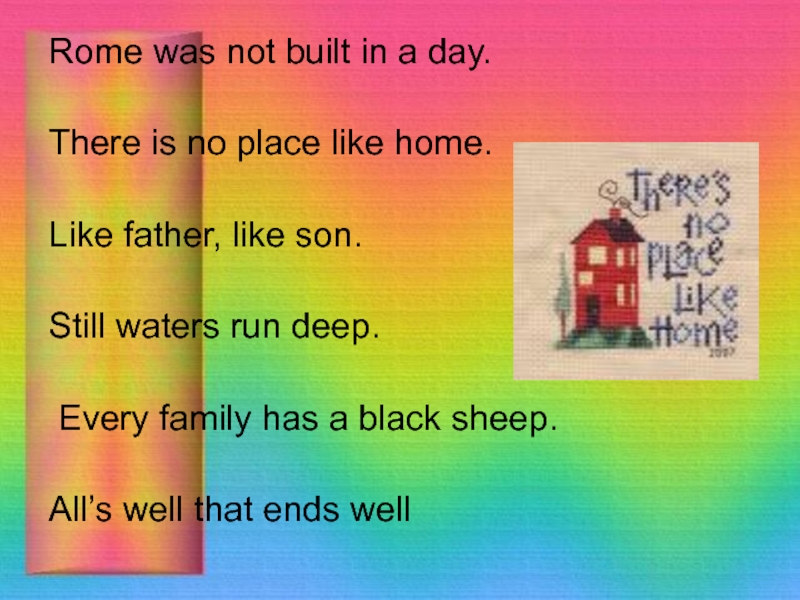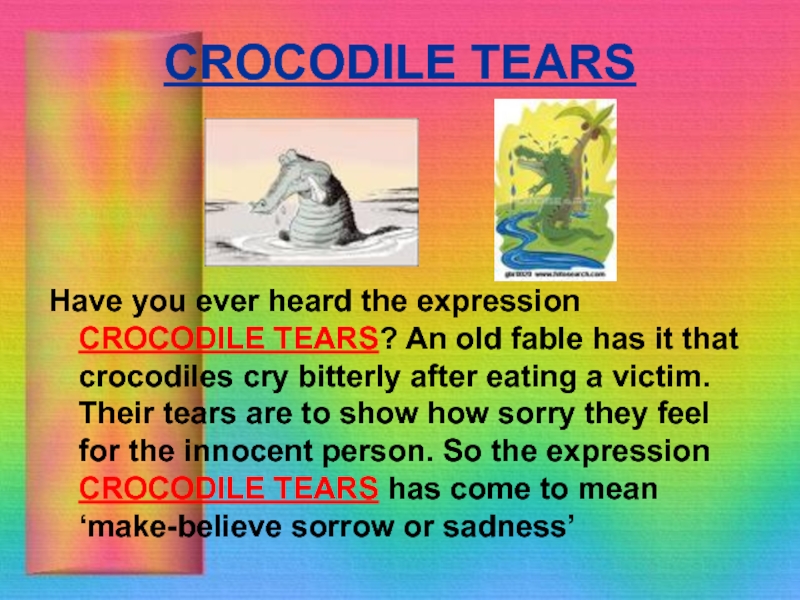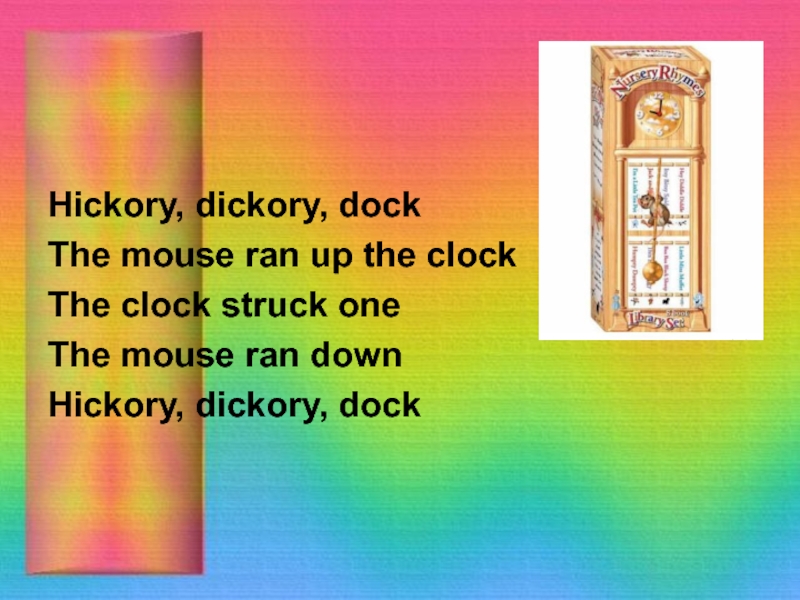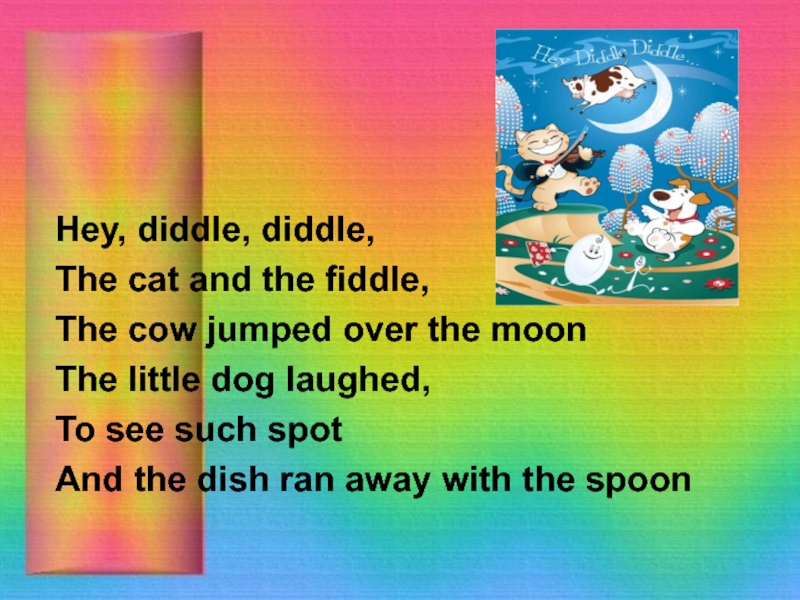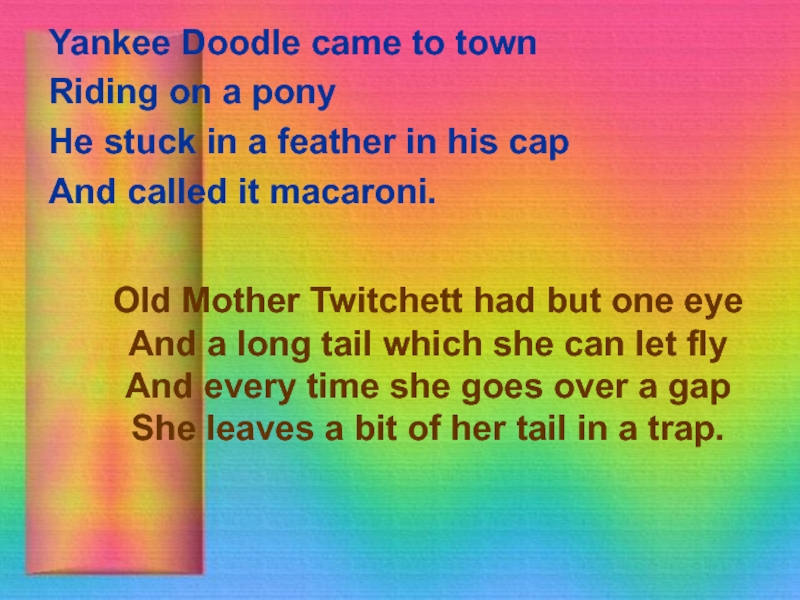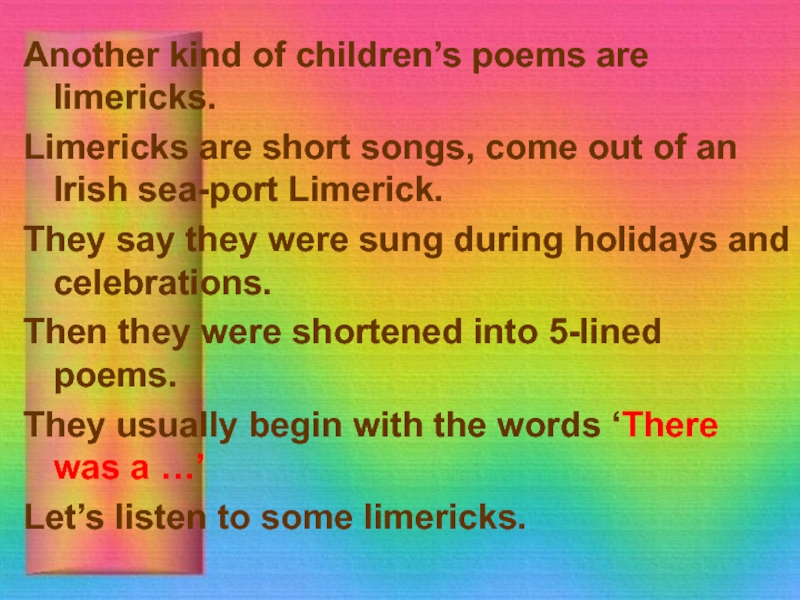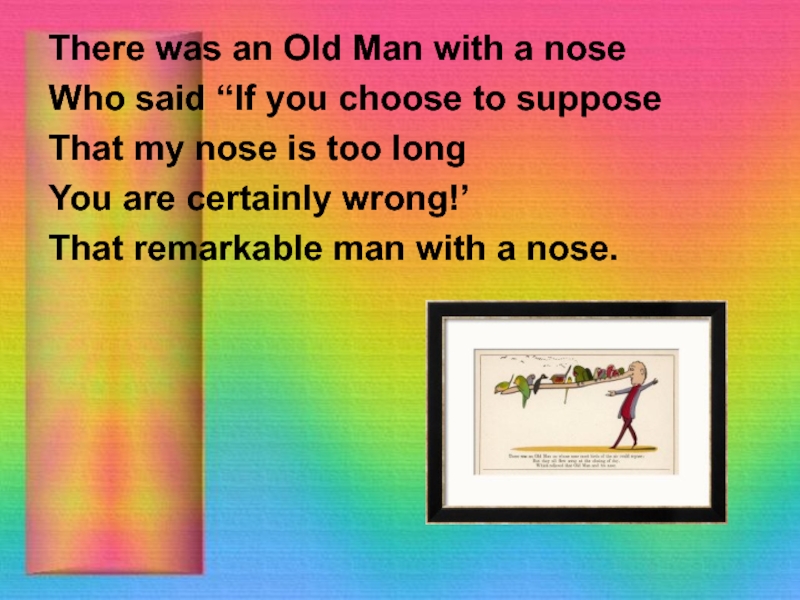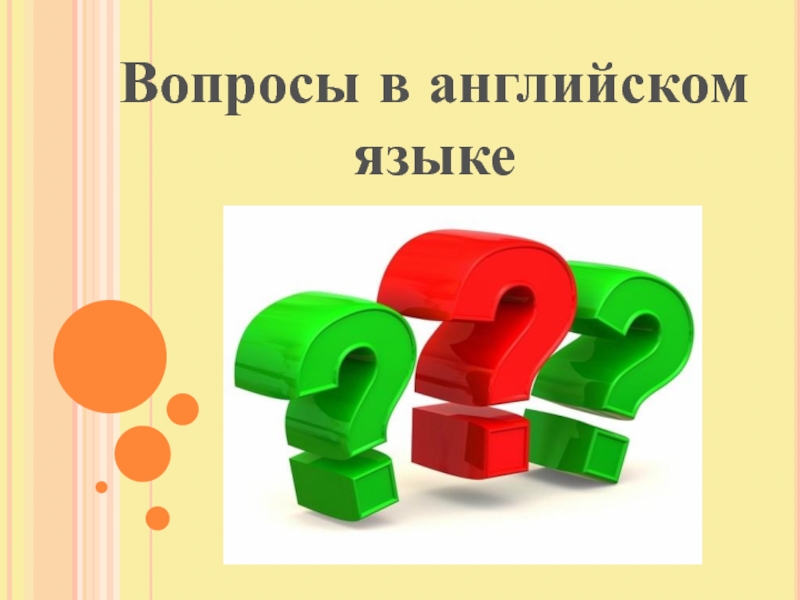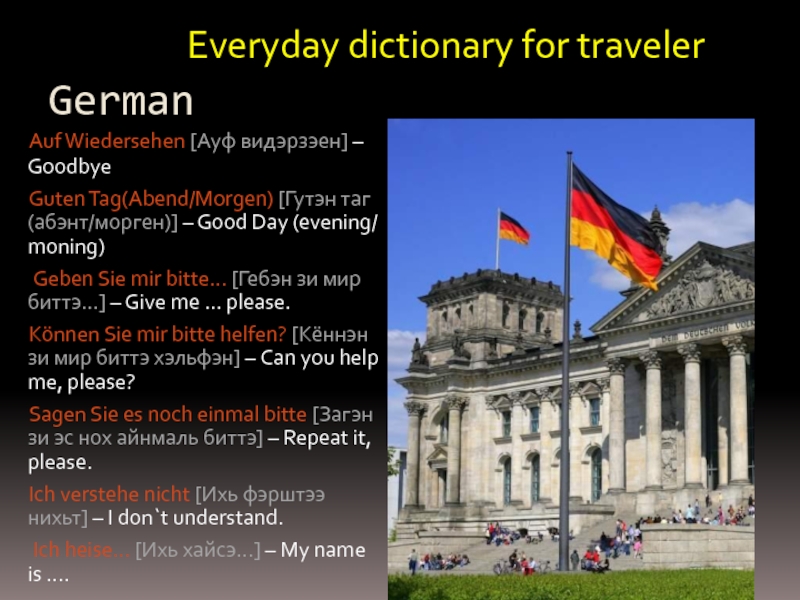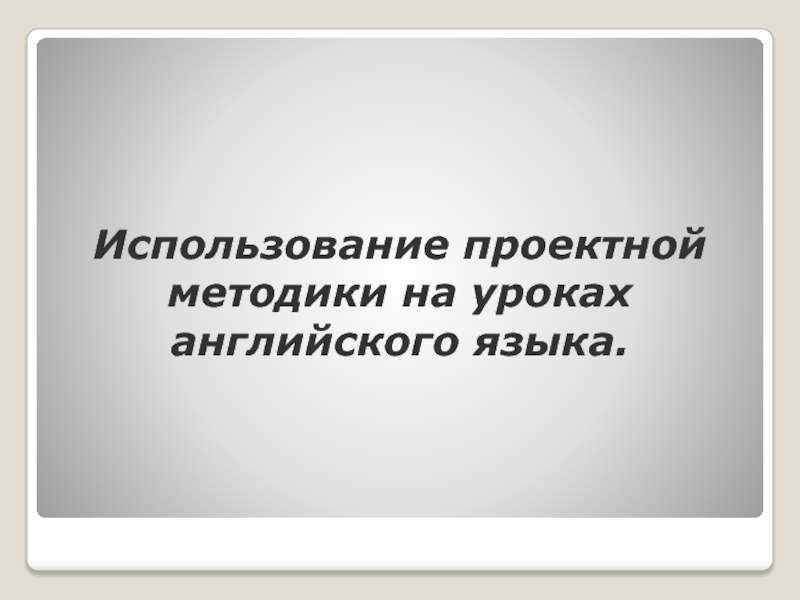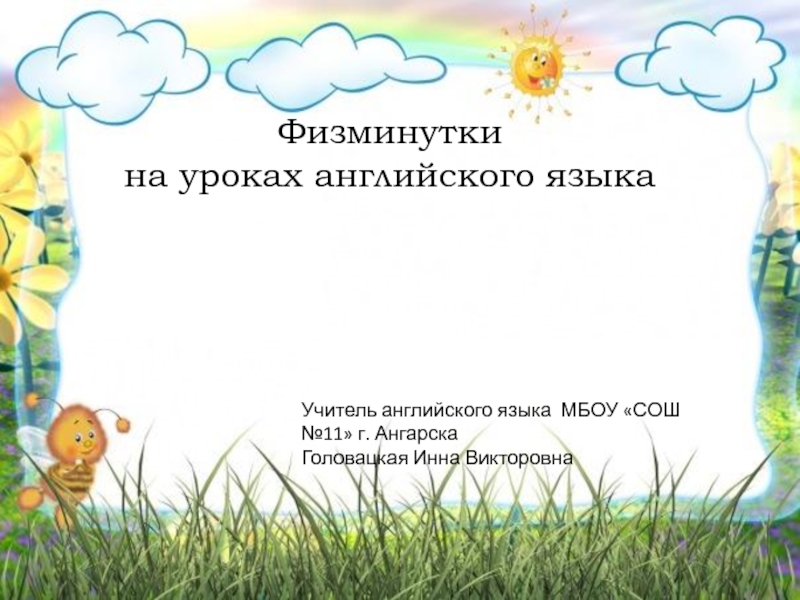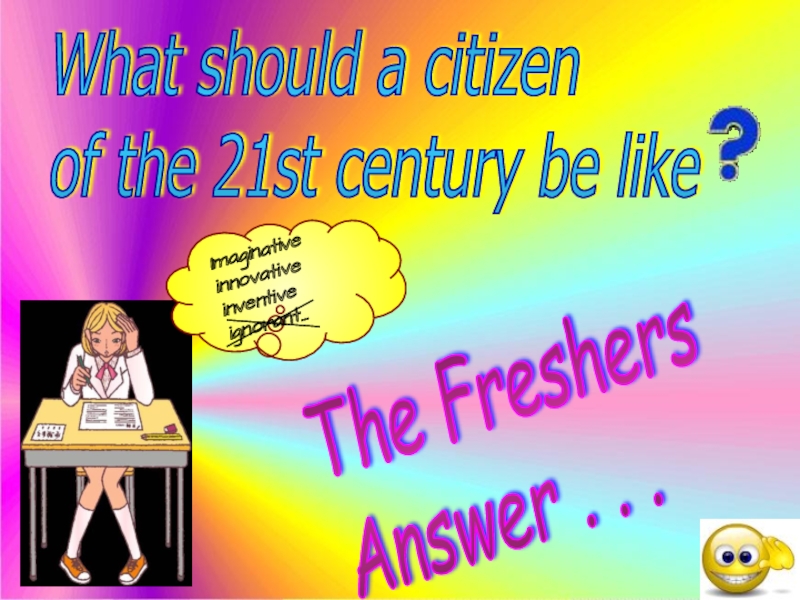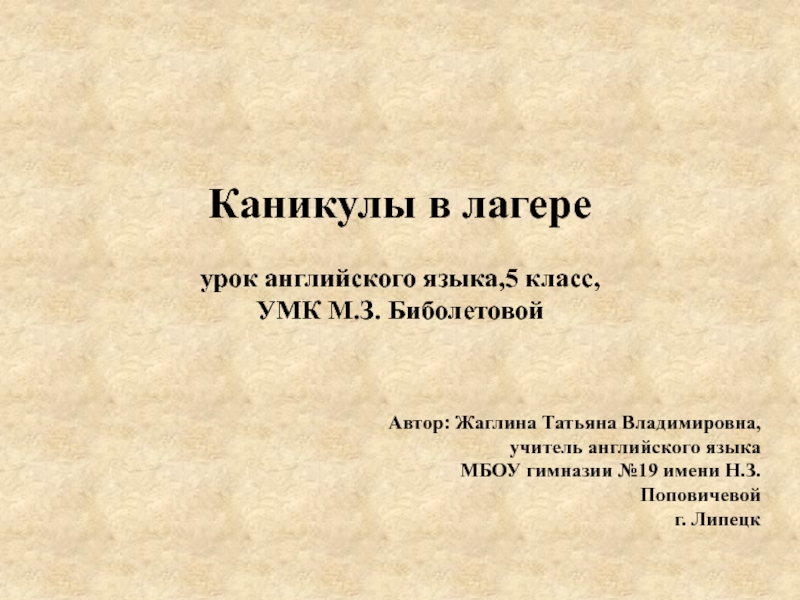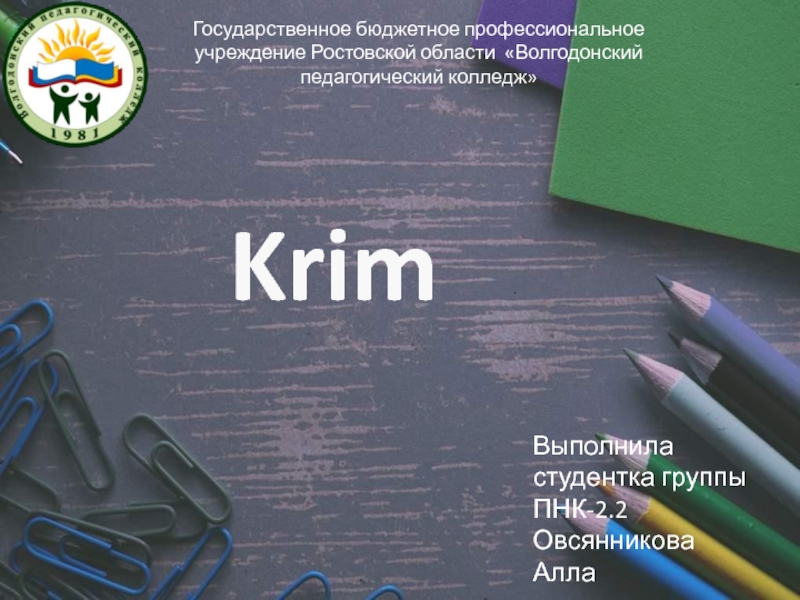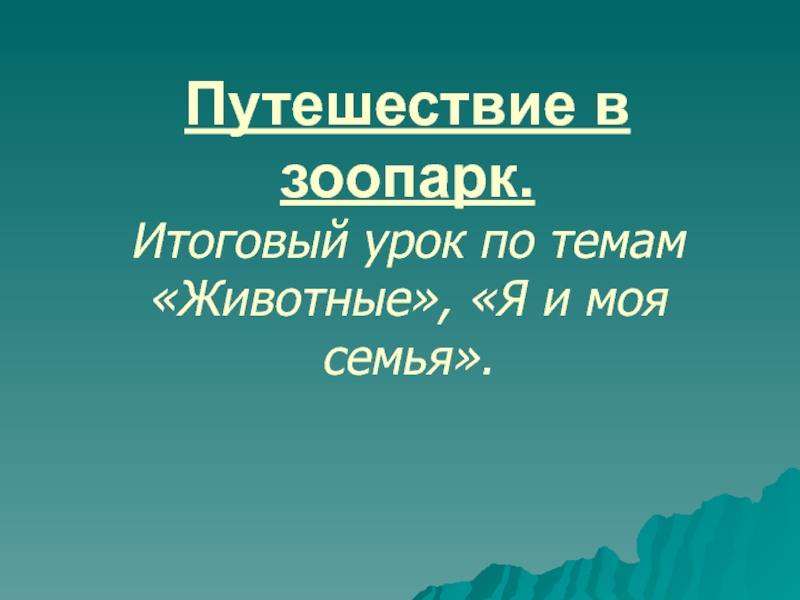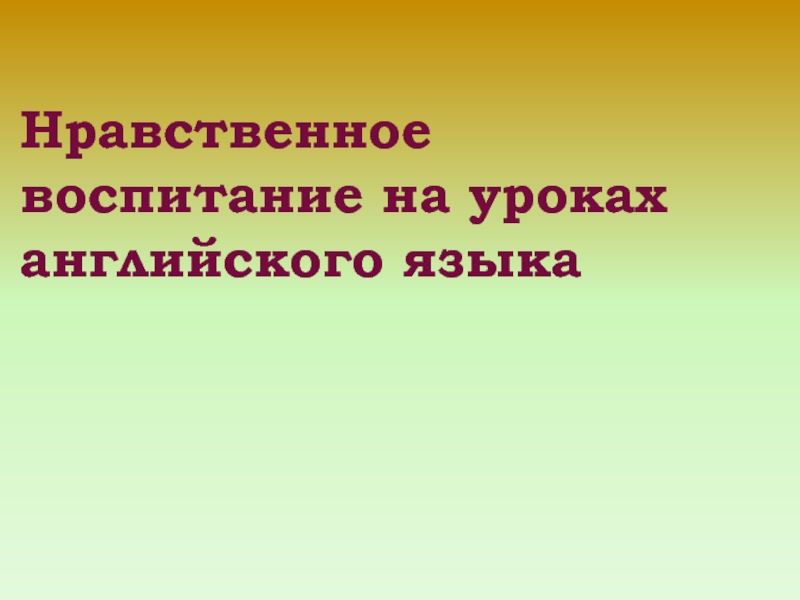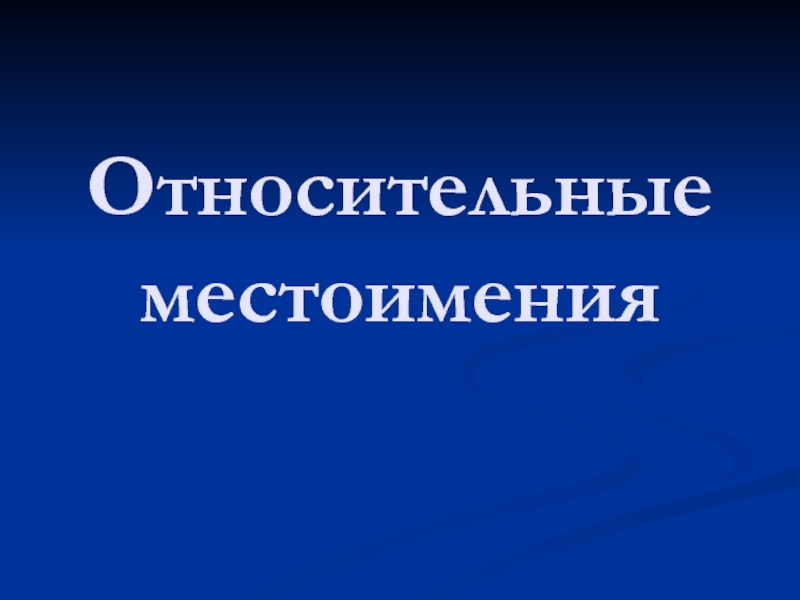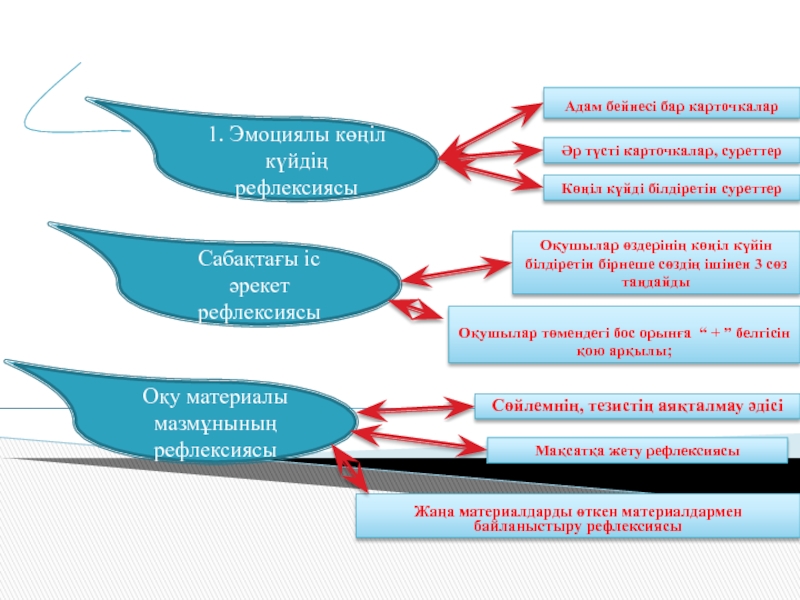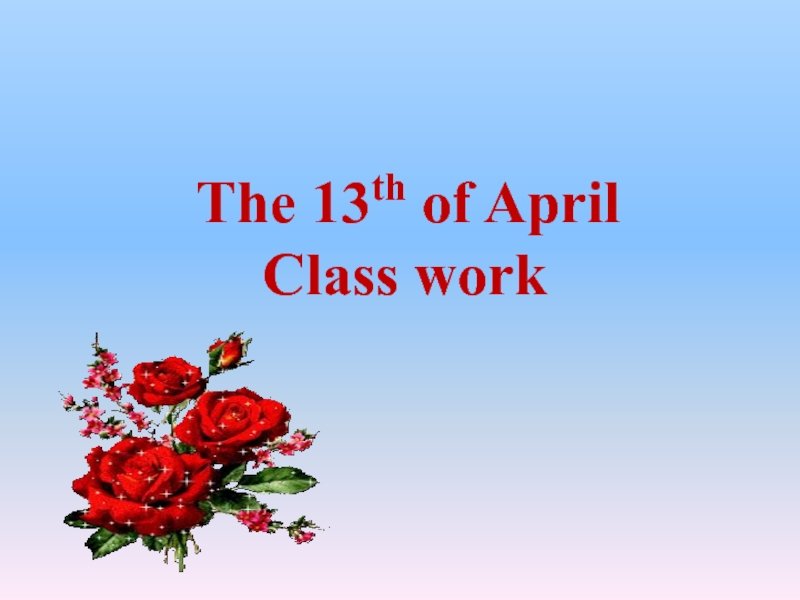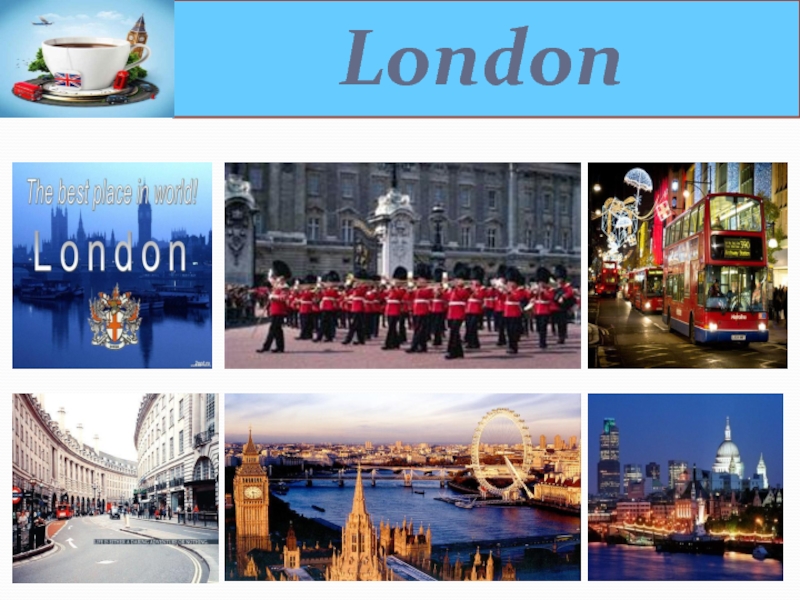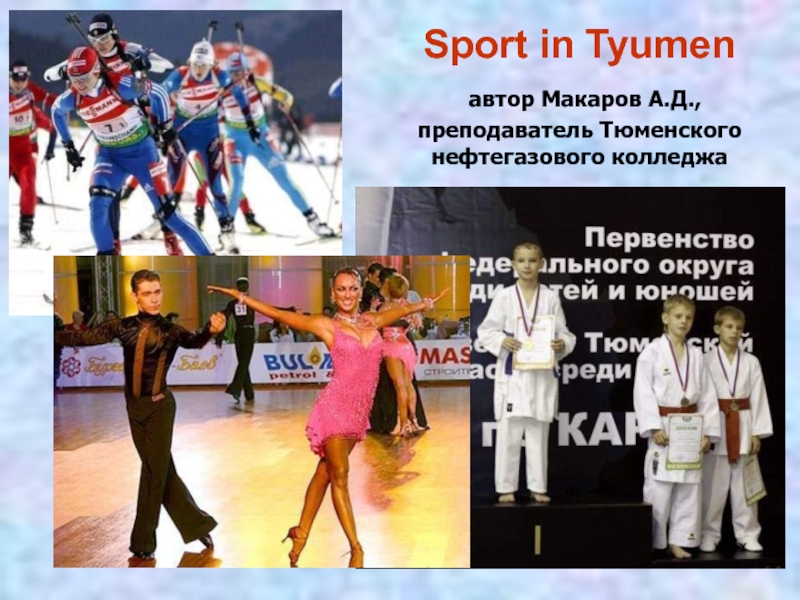Слайд 2Amazing Facts
There were more than 30, 000 words in Old
English. Modern English has the largest vocabulary in the world
– more than 600, 000 words.
Russian words in English are balalaika, bistro, bliny, taiga, tsar, rouble, samovar, sputnik, troika, duma, dacha.
70 per cent of the English language are from other languages and only 30 per cent of the words are English.
The words which are very often used in English are the, of, and, to, a, in, that, is, I, it, for, as.
Слайд 3Tongue-twisters
She sells seashells on the seashore.
Grey geese graze in
the green grass.
Peter Piper picked a peck of pickled
peppers.
Слайд 4Sounds and Letters
When the English tongue we speak
Why is BREAK
not rhymed with WEAK?
Will you tell me why it’s true
That
we say SEW, but also FEW?
When a poet writes a verse
Why is HORSE not rhymed with WORSE?
BEARD is not the same as HEARD
LORD is different from WORD?
COW is cow, but LOW is low
SHOE is never rhymed with TOE.
Think of NOSE and DOSE and LOSE
Think of GOOSE and then of CHOOSE.
Think of COMB and TOMB and BOMB
Doll and ROLL, or HOME and SOME.
We have BLOOD and FOOD and GOOD.
MOULD is not pronounced like COULD.
Think of PAY, SAY, PAID and SAID.
‘I will READ’ and ‘I have READ’
Why say DONE, but GONE and LONE –
Is there any reason known?
To sum it up, it seems to me
That sounds and letters disagree.
Слайд 5Amazing Facts
By the way, if you feel like writing a
poem in English, you should know that no word in
this crazy language rhymes with MONTH, ORANGE, SILVER, PURPLE.
The English language has about 41 sounds while their alphabet has only 26 letters. This is one of the reason why English spelling is so problematic.
More than 60 per cent of English words have silent letters. Nearly every letter in the English alphabet is silent in some words.
Слайд 6Our Queer English Language
We’ll begin with box; the plural is
boxes,
But the plural of ox is oxen, not oxes.
One fowl
is a goose, but two are called geese,
But the plural of mouse is not even meese.
You may find a lone mouse, or a whole nest of mice,
But the plural of house is still never hice.
If the plural of man is always men
Why shouldn’t the plural of pan be pen?
If I speak of a foot and you show me two feet,
And I give you a boot, would a pair be called beet?
If one is a tooth, and a whole set are teeth,
Why shouldn’t the plural of booth be called beeth?
If the singular is this and the plural is these
Should the plural of kiss ever be keese?
We speak of a brother and also call brethren,
And though we say mother we never say methren.
Then the masculine pronouns are he, his, and him
But imagine the feminine she, shis, and shim.
Слайд 7Proverbs
There are proverbs and sayings in every language. They
are handed down from generation to generation and are supposed
to have a universal value. People use them to give a word of advice or a wise comment on the situation.
Some English and Russian proverbs are common and can be translated word by word from one language into another. For example, ‘There is no smoke without fire’ has the Russian equivalent «Нет дыма без огня». With others the meaning of the proverb can be expressed in different ways. For example, “once bitten, twice shy’ can be expressed in Russian by «Обжегшись на молоке, будешь дуть и на воду» или Пуганая ворона и куста боится».
Слайд 8Rome was not built in a day.
There is no place
like home.
Like father, like son.
Still waters run deep.
Every family has a black sheep.
All’s well that ends well
Слайд 9CROCODILE TEARS
Have you ever heard the expression CROCODILE TEARS? An
old fable has it that crocodiles cry bitterly after eating
a victim. Their tears are to show how sorry they feel for the innocent person. So the expression CROCODILE TEARS has come to mean ‘make-believe sorrow or sadness’
Слайд 10SOUR GRAPES
One of Aesop’s fables tells of a fox who
wanted some beautiful, sweet-smelling grapes.
The fox tried and tried
to get the grapes, but they were just a bit higher than he could reach. When the fox realized that he couldn’t reach the grapes, he walked away. As he left, he told himself that the grapes were probably sour and that he really didn’t like them. Now when someone says something bad about something they want and can’t have we sometimes say that they are experiencing SOUR GRAPES.
Слайд 11DOG IN MANGER
Another Aesop’s fable is about a dog who
guarded a manger full of hay. Even though the dog
couldn’t use all the hay, she wouldn’t share it with anyone. So a selfish person is now sometimes called A DOG IN THE MANGER.
Слайд 12Limericks
A lot of poems were famous in England
400 years ago. British people are proud of them and
keep them up. Children’s poems are known as “Mother Goose Rhymes”.
A lot of these poems are about animals because children always like them. Let’s listen to some of them.
Слайд 13
Hickory, dickory, dock
The mouse ran up the clock
The clock struck
one
The mouse ran down
Hickory, dickory, dock
Слайд 14
Hey, diddle, diddle,
The cat and the fiddle,
The cow jumped
over the moon
The little dog laughed,
To see such spot
And
the dish ran away with the spoon
Слайд 15Yankee Doodle came to town
Riding on a pony
He stuck in
a feather in his cap
And called it macaroni.
Old Mother Twitchett
had but one eye
And a long tail which she can let fly
And every time she goes over a gap
She leaves a bit of her tail in a trap.
Слайд 16Another kind of children’s poems are limericks.
Limericks are short
songs, come out of an Irish sea-port Limerick.
They say
they were sung during holidays and celebrations.
Then they were shortened into 5-lined poems.
They usually begin with the words ‘There was a …’
Let’s listen to some limericks.
Слайд 17There was an Old Man with a nose
Who said “If
you choose to suppose
That my nose is too long
You are
certainly wrong!’
That remarkable man with a nose.
Слайд 18
There was a young lady whose chin
Resembled the point of
a pin
So she had it made sharp
And purchased a harp
And
played several tunes with her chin.

